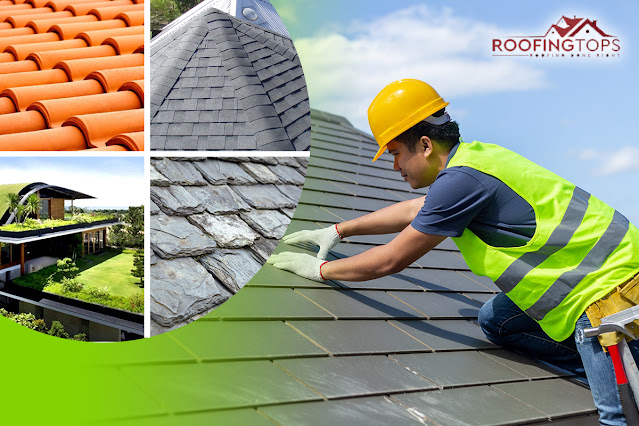Haystacks and banana leaves once sang the tales of roofing and served to provide cover and shelter from the harsh climatic conditions. Slowly, roofing has become one of the most critical factors of a house or a building, and there have been various beneficial advancements. There was a time when asphalt shingles, concrete tiles, and clays were the only available roofing options for the homeowners. But with the growth, the different types of roofing materials increased. And the advanced roofing alternatives now help people to have roofs with great looks and commendable functionality that it serves. Of course, remodeling the tops is the best option to enhance the house's value.
Types of roofing systems
If
you have plans to change the roof of your home, we have a list of the top 4
types of roofing systems for homes,
which may help you choose the best option for your needs.
1. Slate Shingles: Slate Shingles are natural stones and are for the people who won't like to settle for anything other than it. They are easy to split into thin sheets and should be installed with utmost care. It's the ideal option.
2. Asphalt Shingles: Having some great features like cheaper rates, long-term warranty, easy availability, and easy installation process, Asphalt Shingles are preferred by many, and roofers consider them the best for homes.
3. Clay Tiles: One of our favorite roofing in the list of different types of roofing materials is clay shingles. Clay tiles are delicate but have tremendous resistance to fire, rain, decay, and even mold. They are the most durable and reliable option for many and are readily available. Undoubtedly, clay roofs are straightforward to maintain, but the undeniable factor persists that they are heavy and expensive to be installed.
4. Green Roofs: The roofs being called "green" has a reason behind them. They can support the plantation growth of moss. The Greens roofs are prevalent because they act as a natural thermal insulator, which is highly appreciable when looking at global climate change. Also, its feature of absorbing the excess rainwater and working as a natural garden helps it stand out from the other options.






